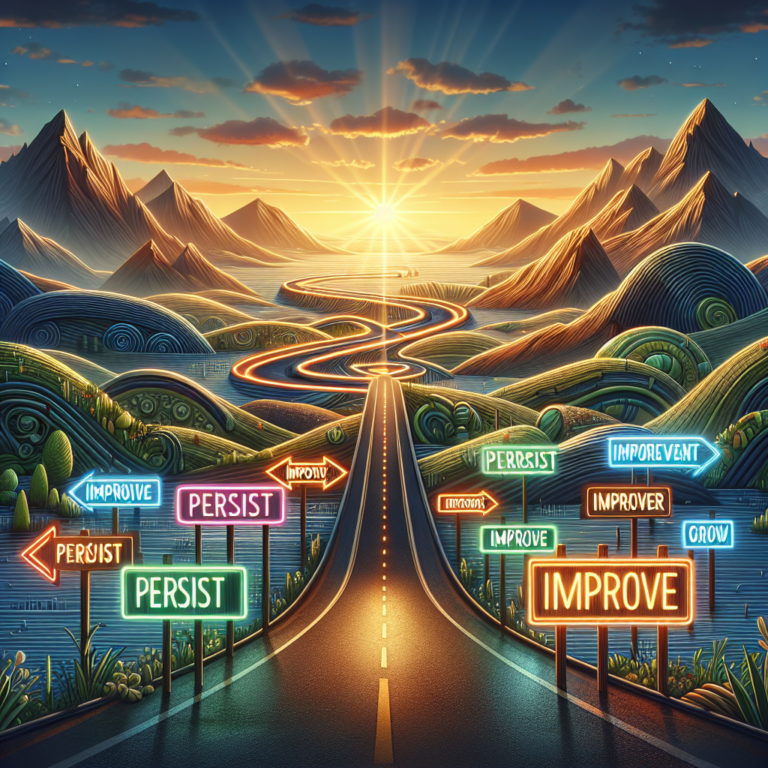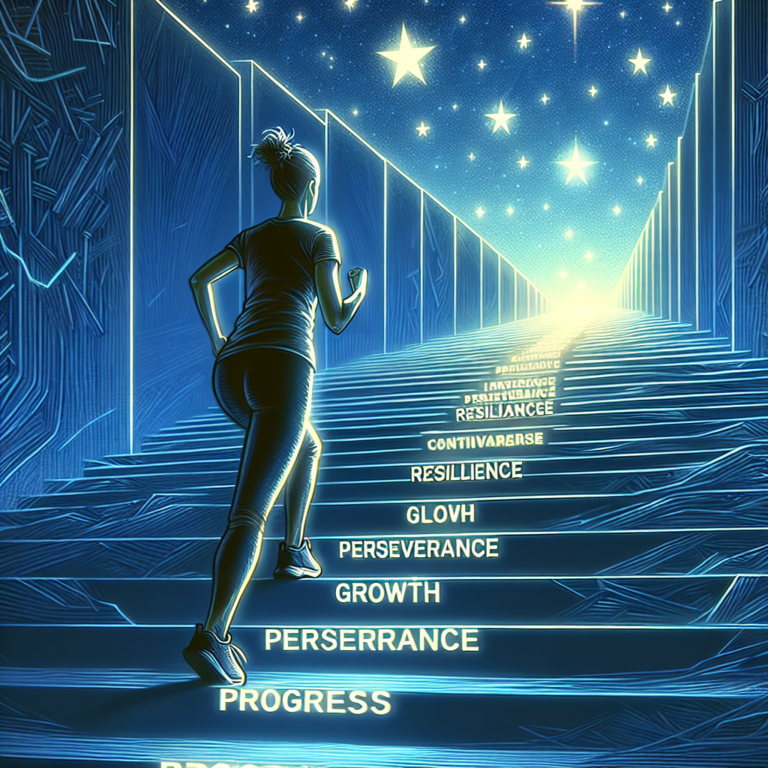
The Ultimate Guide to The Art of Resilience: How Self-Improvement Shapes Your Response to Change
Introduction
In a world that is ever-changing, the ability to adapt is more crucial than ever. Whether facing job loss, personal setbacks, or global crises, our resilience determines how we navigate these challenges. The Art of Resilience: How Self-Improvement Shapes Your Response to Change is not just a concept; it’s a necessary skill set that can empower you to overcome adversity and emerge stronger. This article delves deep into the techniques and mindset shifts that foster resilience, offering actionable insights that can help you transform your response to life’s inevitable changes.
As we journey through life, we will encounter hurdles that test our mettle. These experiences can be daunting, but embracing the art of resilience transforms setbacks into opportunities for growth. Join me as we explore the dynamic relationship between self-improvement and resilience, enriched with real-life examples, actionable strategies, and clarity that inspires change.
Understanding Resilience
What is Resilience?
Resilience is more than just “bouncing back” from adversity; it’s about thriving in the face of change. According to researchers, resilience is defined as the process of adapting well in the face of adversity, trauma, or significant stress. This concept encompasses several dimensions, including emotional strength, mental fortitude, and social support.
The Importance of Resilience
Cultivating resilience has wide-ranging benefits. Studies show that resilient individuals are often better equipped to handle stress, maintain positive relationships, and achieve personal and professional success. Resilience is not innate; it can be developed through deliberate practice and self-improvement. This is where The Art of Resilience: How Self-Improvement Shapes Your Response to Change comes into play.
The Connection Between Self-Improvement and Resilience
1. Mindset Matters
Growth Mindset vs. Fixed Mindset
Dr. Carol Dweck’s research emphasizes the importance of adopting a growth mindset to foster resilience. A growth mindset embraces challenges as opportunities for learning rather than viewing failures as insurmountable obstacles. In contrast, a fixed mindset constrains personal development and perpetuates feelings of helplessness.
Table 1: Growth Mindset vs. Fixed Mindset
| Characteristic | Growth Mindset | Fixed Mindset |
|---|---|---|
| View on Challenges | Opportunities for growth | Threats to self-esteem |
| Approach to Failure | Learning experience | Reflects inadequacy |
| Effort and Hard Work | Pathway to mastery | Indicator of lack of talent |
Case Study: Thomas Edison
Thomas Edison, the inventor of the lightbulb, is a perfect example of resilience in action. After thousands of failed attempts, he famously stated, “I have not failed. I’ve just found 10,000 ways that won’t work.” His growth mindset fueled his relentless pursuit of innovation, underscoring The Art of Resilience: How Self-Improvement Shapes Your Response to Change.
2. Emotional Regulation
Techniques for Managing Emotions
Resilient individuals have higher emotional intelligence, enabling them to regulate their emotions during challenging times. Techniques such as mindfulness, meditation, and cognitive-behavioral strategies can improve emotional management.
Table 2: Techniques for Emotional Regulation
| Technique | Description | Benefits |
|---|---|---|
| Mindfulness | Awareness of the present moment | Reduces anxiety and stress |
| Meditation | Focused mental exercise | Promotes calmness and clarity |
| Cognitive Restructuring | Changing negative thought patterns | Increases positive outlook and resilience |
Case Study: The Resilience of Tilly Lockey
Tilly Lockey, a young girl who lost her hands due to a rare disease, exemplifies emotional regulation and resilience. Through determination and innovation, Tilly adapted with the help of prosthetics and now advocates for others, showing how self-improvement can shape one’s response to overwhelming challenges.
Building Resilience Through Self-Improvement
3. Setting Realistic Goals
The Power of SMART Goals
Setting and achieving realistic goals is a fundamental aspect of self-improvement that fosters resilience. The SMART framework (Specific, Measurable, Achievable, Relevant, Time-bound) allows individuals to identify clear objectives and maintain focus during tumultuous times.
Case Study: J.K. Rowling
Before the success of the Harry Potter series, J.K. Rowling faced numerous rejections and hardships as a single mother. By setting incremental goals for her writing, she not only improved her craft but also cultivated resilience through perseverance and a clear vision of her ultimate success.
4. Building a Strong Support Network
Importance of Social Support
Support from friends, family, and mentors is critical in bolstering resilience. Engaging with a network provides encouragement, advice, and a sense of belonging.
Chart 1: Impact of Social Support on Resilience
| Social Support | Impact on Individual Resilience |
|---|---|
| Emotional Support | Helps in coping with stress |
| Informational Support | Provides guidance and insight |
| Practical Support | Offers tangible assistance |
Case Study: The Power of Community
Consider the community support offered to those affected by disasters, such as the aftermath of Hurricane Katrina. Volunteers and organizations rallied to provide resources and emotional support, demonstrating how collective resilience, fostered through self-improvement in community engagement, shapes responses to change.
Strategies for Enhancing Resilience
5. Embracing Change
The Role of Acceptance
Change is inevitable. Embracing it rather than resisting it can lead to profound growth. Practicing acceptance encourages individuals to acknowledge their situations without judgment, propelling them toward constructive responses.
6. Lifelong Learning
Continuous Skill Development
Incorporating lifelong learning into your routine is a proactive step in self-improvement. By seeking new skills and knowledge, you enhance your adaptability to change, making you more resilient.
Case Study: The Digital Transformation of Businesses
The COVID-19 pandemic forced many businesses to pivot swiftly to digital platforms. Companies that emphasized continuous learning and skill acquisition for their employees managed to adapt effectively, showcasing The Art of Resilience: How Self-Improvement Shapes Your Response to Change in the corporate world.
Conclusion
In summary, The Art of Resilience: How Self-Improvement Shapes Your Response to Change is a multifaceted journey that combines mindset shifts, emotional intelligence, goal-setting, social support, and embracing change. By prioritizing self-improvement, we can cultivate the resilience needed to navigate life’s uncertainties with confidence and grace.
As you take this knowledge forward, remember that resilience is not a destination; it’s an ongoing process. Embrace challenges, learn from experiences, and transform your response to change into an art form.
FAQs Section
1. What is resilience?
Resilience is the ability to adapt positively in the face of adversity, stress, or trauma. It involves emotional strength and the capacity to bounce back from hardships.
2. How can I develop resilience?
You can develop resilience by adopting a growth mindset, practicing emotional regulation, setting realistic goals, building support networks, and embracing lifelong learning.
3. Are there exercises for improving emotional resilience?
Yes, mindfulness meditation, journaling, and cognitive restructuring exercises are effective methods for enhancing emotional resilience.
4. Why is social support important in building resilience?
Social support provides emotional, informational, and practical assistance that can help you cope with challenges, making it vital for developing resilience.
5. Can resilience be learned at any age?
Absolutely! Resilience is a skill that can be learned and developed at any stage of life through practice, reflection, and self-improvement strategies.
By understanding The Art of Resilience: How Self-Improvement Shapes Your Response to Change, you equip yourself with the necessary tools to thrive in an unpredictable world. Embrace your journey toward resilience today!















